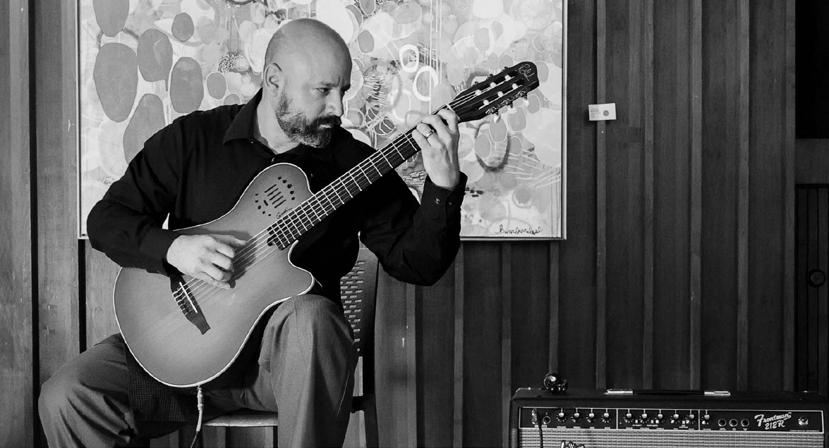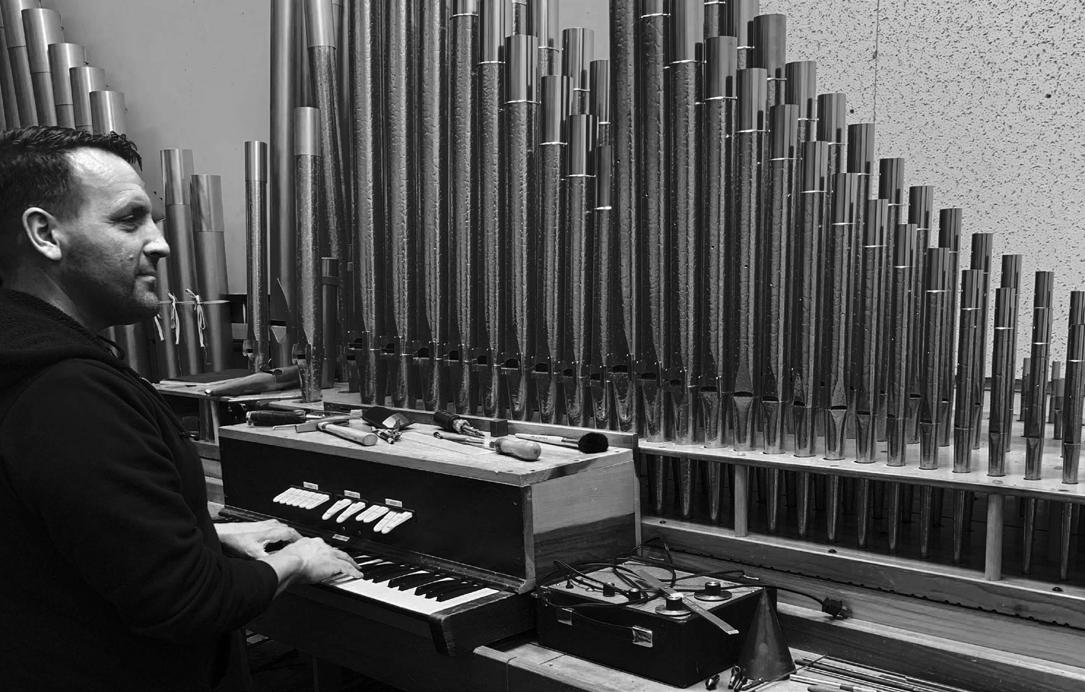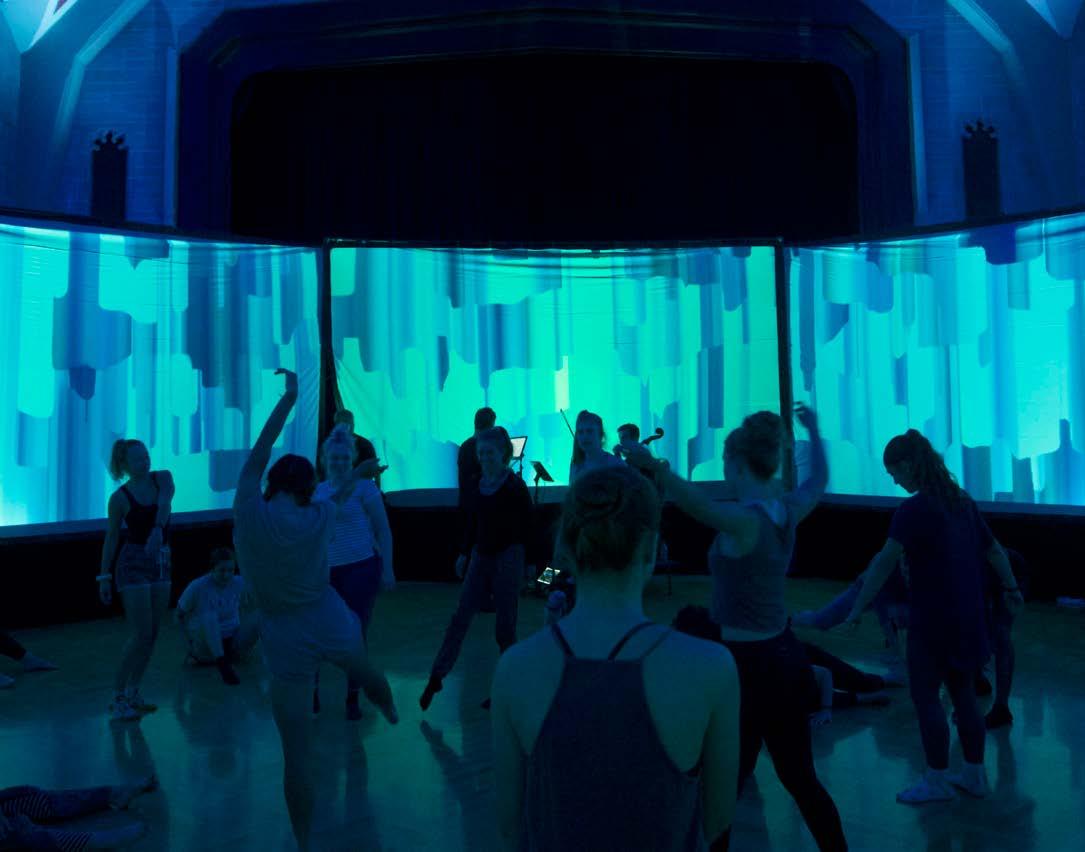
2 minute read
If memory serves
CAPTURING THE POWER OF MEMORIZATION IN PRACTICE AND PERFORMANCE
Words by Amy Lynch Strong memorization skills benefit musicians in many ways, but modern performers are now discovering that they’re no longer the critical measure of success they once were.
Advertisement
“There’s always been an expectation that musicians should play from memory for everything but chamber music or modern music, which harkens back to the Romantic era with pianists like Franz Liszt and Clara Schumann,” says Clare Longendyke, D.M., a classical concert pianist and founder of the Music in Bloom Festival. “Those unspoken rules are changing. Now, it’s more a matter of personal preference.”
The advent of visually unobtrusive electronic devices to manage page-turning is another factor that’s making memorization less necessary these days.
Professional violist and professor at the University of Arizona, Molly Gebrian, D.M.A., taps into her neuroscience background to apply learning and memory to musical practice, saying that understanding how the brain works makes her a better teacher. “There are three stages of memorizing,” she explains. “Encoding introduces new information to your brain; consolidating moves the information from short- to long-term storage, a process that usually happens during sleep; and retrieval gets the information back again when you need it.”
For Longendyke, memorization draws on all the processes she needs to perform at peak level. “Memory starts working from the first time I play through a piece,” she notes. “If there’s a deadline, that’s when I really start digging into active memorization. I envision how the music looks on the page and test myself to understand where any hiccups are. Performance is also part of the memorization process; a piece is never fully memorized until it’s been played for an audience.”
“For musicians, the types of memory we rely on the most are muscle memory, or what it feels like to play something; aural memory, what the piece sounds like; and declarative memory of the actual notes and rhythms,” Gebrian adds. Both Gebrian and Longendyke say patterns make some pieces easier to learn by heart than others, with more deconstructed modern music being the most difficult to commit to memory. “Etude No. 4: Fanfares by György Ligeti was hard for me because there are no patterns to grab onto,” Longendyke says. “The integrals that harmonized the melody change beat to beat!”

“In Ligeti’s Sonata for Viola solo, the second movement is called Loop; the music repeats like a loop, but the rhythm is different every time,” Gebrian says.
To improve your memory at home, Gebrian and Longendyke recommend ditching the crutches of phones and computers and testing yourself without them. “Chunking is a great tool — arranging separate pieces of information together into meaningful units or ‘chunks’ to make them easier to remember,” Gebrian says. “Phone numbers are a perfect example.”
“If you’re trying to memorize a poem, read through it passively at first and notice what sticks out to you,” Longendyke says. “Allow yourself to just observe and create context, then challenge yourself to recall it.”
Some studies show that testing your brain through memorization may even offer protective benefits against future development of Alzheimer’s disease and dementia. “Memory is my daily brain exercise,” Longendyke says. “It’s so important.” ■
Clare Longendyke, D.M.
Molly Gebrian, D.M.A, Photo by Carlin Ma Music & Science











